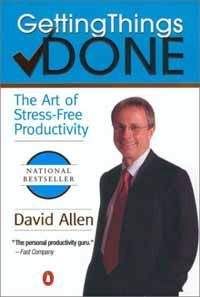Richard Bandler - Frogs into Princes: Neuro Linguistic Programming

Скачивание начинается... Если скачивание не началось автоматически, пожалуйста нажмите на эту ссылку.
Жалоба
Напишите нам, и мы в срочном порядке примем меры.
Описание книги "Frogs into Princes: Neuro Linguistic Programming"
Описание и краткое содержание "Frogs into Princes: Neuro Linguistic Programming" читать бесплатно онлайн.
What People are saying about this book:
"A readable, practical, and entertaining book about a challenging, original, and promising new discipline. I recommend it."—Dan Goleman, Associate Editor of Psychology Today.
"NLP represents a huge quantum jump in our understanding of human behavior and communication. It makes most current therapy and education totally obsolete."—John O. Stevens, author of Awareness and editor of Gestalt Therapy Verbatim and Gestalt is.
"This book shows you how to do a little magic and change the way you see, hear, feel, and imagine the world you live in. It presents new therapeutic techniques which can teach you some surprising things about yourself."—Sam Keen, Consulting Editor of Psychology Today and author of Beginnings Without End, To a Dancing God, and Apology for Wonder.
"How tiresome it is going from one limiting belief to another. How joyful to read Bandler and Grinder, who don't believe anything, yet use everything! NLP wears seven-league-boots, and takes 'therapy' or 'personal growth' far, far beyond any previous notions."—Barry Stevens, author of Don't Push the River, and co-author of Person to Person.
"Fritz Perls regarded John Stevens' Gestalt Therapy Verbatim as the best representation of his work in print. Grinder and Bandler have good reason to have the same regard for Frogs into Princes. Once again, it's the closest thing to actually being in the workshop."— Richard Price, Co-founder and director of Esalen Institute.
Woman: That works if you are the outside consultant coming in, but what if you are already in the system?
If you are an inside consultant or you are a member of the system at the same level of functioning, there may be people who would resent or resist if you state it as your proposal. So you have to frame it appropriately. It's not a proposal coming from you. It's a proposal you are offering that comes from outside, which you think might be useful for you and the rest of the members of the group. You can do it metaphorically. You can say "I spent a fascinating evening the other night with a corporate consultant in Chicago. I went to a conference and the leader told us the following:" Then you present all the information that I just presented to you. If you do that congruently, it will be an acceptable proposal. You can always suggest an experiential test to find out whether it's worth doing. You can ask people to try it for two hours. If it works, people will continue it. If it doesn't, you haven't lost much, and you don't want to continue it anyway.
I would like to point out that discussions where antagonistic positions are being presented are the life blood of any organization if they are done in a particular context. That context is that you establish a frame around the whole process of argument, so that the disputes, the discussions of antagonistic proposals, are simply different ways of achieving the same outcome that all members agree upon.
Let me give a content example. George and Harry are co-owners of a corporation; each owns fifty percent of the stock. I've been brought in as a corporate consultant. Harry says the following: "We've got to expand. You grow or you die. And specifically we've got to open offices in Atlanta, Chattanooga, and Miami this year." And George over here says "Look, you know as well as I do, Harry, that last year when we opened the Chicago and Milwaukee offices, we opened them on a shoestring. And as a matter of fact, they still are not yet self-sufficient. They are still not stabilized to the point that they are turning over the amount of business that gives me the confidence to know that we can go ahead and expand into these other offices. Now how many times do we have to go through this?"
So there's a content difference between these two human beings about the next thing they should do as a corporate entity. One strategy that always works effectively in this situation is to reframe the two responses that they are offering as alternative ways of getting an outcome that they both agree is desirable. So first you have to find the common goal—establish a frame. Then you instruct them in how to dispute each other's proposals effectively, because now both proposals are examples of how to achieve the same outcome that they both have agreed upon.
So I would do something like the following: "Look, let me interrupt you for a moment. I just want to make sure that I understand you both. Harry, you want to expand because you want the corporation to grow and realize more income, right?" I then turn to George and say "My understanding is that your objection to the expansion at the moment, and your focusing on the fact that the Milwaukee and Chicago offices are not quite self-sufficient yet, is your way of being sure that the quality of the services that you offer as a corporation are of a certain level. You are offering a quality product and you want to maintain that quality, because otherwise the whole thing won't work anyway." And he'll say "Of course. Why do you ask these things?" And then I say "OK, I think I understand now. Both of you agree that what you want to do is expand at a rate congruent with maintaining the high quality of services your corporation offers." And they'll both say "Of course." You've now achieved the agreement that you need; you've now got the frame. You say "Good. Since we agree on the outcome that we're all working toward, let's find the most effective, efficient way to get that outcome. Now you, George, make a specific, detailed proposal about how you will know when the Chicago and Milwaukee offices are stabilized at a quality of operation that allows you to feel comfortable about turning resources elsewhere to continue expanding. Harry, I want you to come up with the specific evidence that you can use to know when it is appropriate to open new branches. What will you see or hear that's going to allow you to know that it is now appropriate to open a new office in Chattanooga, and still maintain the quality of the services you're going to offer?"
First I use language that generalizes, to establish the frame. Then I make sure it is anchored in. "Since we all agree about the outcome,... Then I challenge them to take the proposals they've been fighting over—now embedded in a context of agreement—back to the level of sensory experience. I demand that each of them give specific evidence to support that their proposal is more effective in achieving the outcome that they have both agreed upon. Now they will have useful disputes. And I will monitor their language to be sure that they are being specific enough to make a good decision. You can always figure out what would constitute evidence that one proposal is more effective than another.
Let me give you a specific strategy for doing this. You listen to both complaint A and complaint B. Then you ask yourself "What are A and B both examples of? What is the class or category that they are both examples of? What is the outcome that both of these two people will share? What common intention lies behind or underneath both these two particular proposals?" Once you discover that, then you interrupt and state the obvious in some way. You get an agreement between these two people, so that they can then begin to usefully disagree within the context of agreement.
Now that has the same formal properties of what I did with Dick in the six-step reframing. We found a point where his conscious mind and his unconscious mind could agree about a certain outcome that was useful for him as an individual.
Harry and George now agree that whatever they end up doing— either one of their proposals, both, or some alternative to those—the outcome they are working toward is to benefit the corporate entity as a unit. So I ignore the specific behaviors, and I go after an outcome that the two parts of the corporation—or the two parts of the human being—can agree upon. Now, having achieved the frame of agreement, it becomes trivial to vary behavior in order to find a behavior that achieves the outcome that both partners can agree to.
If you have more than two people involved—which is usually the case—you can simplify the situation by organizing the discussion. Just say "Look, I'm getting very confused by the way we're discussing things. Let me organize it a little bit in the following way: I want the rest of you to be exquisitively attentive. You have the job of watching and listening to exactly what these two people are going to propose, and assisting me in the process of finding what's common about what they want to do. You can reorganize it into pairs, and then work with one pair at a time. And as you do that, of course you are teaching the pattern to the observers at the same time.
People have strange ideas about change. Change is the only constant in my thirty-some years of experience. One of the weird things that's happened—and this is a really good example of natural anchoring—is that change and pain are associated. Those ideas have been anchored together in western civilization. That's ridiculous! There's no necessary relationship between pain and change. Is there Linda? Tammy? Dick?
There is one class of human beings in which you may have to create pain in order to assist them in changing, and that's therapists. Most therapists intrinsically believe—at the unconscious level as well as the conscious level—that change has to be slow and painful. How many of you at some point during the demonstrations have said to yourself "That's too easy; it's too fast." If you examine the underlying presuppositions that cause you to respond that way, you'll discover that they are associated with pain and time and money and stuff— some of which are really powerful and valid economic considerations. Others are just junk that have been associated—like change and pain. So you might examine your own belief structure, because what you believe will come out. It will be in your tone of voice, in your body movement, in the hesitation as you lean forward to do this work with someone.
All the tools that we offer you are very powerful and elegant. They are the minimum that I think you need to operate, no matter what psychotheology you were previously trained in.
If you decide that you want to fail with this material, it's possible to. There are two ways to fail. I think you ought to be aware of what those are, so that you can make a choice about how you are going to fail if you decide to.
One way is to be extremely rigid. You can go through exactly the steps that you saw and heard us go through here, without any sensory experience, without any feedback from your clients. That will guarantee that you will fail. That's the way most people fail.
The second way you can fail is by being really incongruent. If there's a part of you that really doesn't believe that phobias can be done in three minutes, but you decide to try it anyway, that incongruency will show up in your non-verbal communication, and that will blow the whole thing.
Every psychotherapy that I know of has an acute mental illness within it. Each one thinks that their theory, their map, is the territory. They don't think that you can make up something totally arbitrary and install it in someone and change them. They don't realize that what they believe is also made up and totally arbitrary. Yes, their method does elicit a response from people, and sometimes it works for the problem you're working on. But there are a thousand other ways to go about it, and a thousand other responses.
For example, TA has a thing called "reparenting" in which they regress a person and give him a new set of parents. And if it's done appropriately, it will work. The TA belief is that the person is messed up because when they were a kid they didn't get certain kinds of experiences, so you have to go back and give them those experiences in order for them to be different. That's the TA theology, and accepting that belief system constitutes the mental illness of TA. TA people don't realize that you can get the same result a thousand other ways, and that some of them are a lot quicker than reparenting.
Any belief system is both a set of resources for doing a particular thing, and a set of severe limitations for doing anything else. The one value in belief is that it makes you congruent. That part is very useful; it will make other people believe you. But it also establishes a huge set of limitations. And my belief system is that you will find those limitations in yourself as a person as well as in your therapy. Your clients are going to end up being a metaphor for your personal life because you are making the ultimate tragic mistake. You believe that your perceptions are a description of what reality actually is.
There is a way out of that. The way out of that is to not believe what you're doing. That way you can do things that don't fit with "yourself," "your world," etc. I recently decided that I want to write a book titled, When you discover your real self, then buy this book and become someone else.
If you simply change your belief system, you will have a new set of resources and a new set of limitations. Having the choice of being able to operate out of different therapeutic models is very valuable in comparison to only being able to operate out of one model. If you believe any of them, you will remain limited in the same way those models are limited.
One way to get out of that is to learn to go into altered states in which you make up models. Once you realize that the world in which you're living right now is completely made up, you can make up new worlds.
Now if we're going to talk about altered states of consciousness, we first have to talk about states of consciousness. You are at this moment in time conscious, true or not true?
Woman: I think so.
OK. How do you know that you're conscious at this moment? What are the elements of your experience that would lead you to believe that you are in your normal state of consciousness? I want to know what it is about this state of consciousness that allows you to know that you are here.
Woman: Ah, I can hear your voice.
You can hear my voice, so you have auditory external. Is anyone talking on the inside at this moment?
Woman: I may have some internal voices.
Do you? While you're listening to me talk, is anyone else speaking? That's what I want to know. And I'm going to continue to talk so that you can find out.
Woman: I... yes.
Is it a he or a she or an it? Woman: A she.
All right. So you have some external and internal auditory experience. All TA people have that. They have a "critical parent," saying "Am I doing this right?" No one else does, though—until they go to a TA therapist, and then they have a critical parent. That's what TA does for you. OK, what else have you got? Are you visualizing while I'm speaking to you?
Woman: No, I'm seeing you on the outside.
OK, so you have some visual external experience. Are you having any kinesthetic experience?
Woman: Not until you mentioned it.
OK. What was it?
Woman: Ahhhhmmmm ... I can feel a tightness in my jaw.
Another way to get this would be to say "What are you aware of?" And you would tell me about your state of consciousness at that moment in time. So we have specified auditory, visual, and kinesthetic. You weren't perceiving any smells or taste, were you?
Woman: No.
OK, I didn't think you were. Now, my definition of altering your state of consciousness is to change it from this to any other possible combination of these things. For example, if you were to only hear my voice and not your internal dialogue, that would constitute an altered state for you because you don't usually do that. Most of the time you talk to yourself while other people are talking. If, instead of seeing externally, you were to make clear, rich, vivid, focused images of anything inside, that would be an altered state. For example, if you were to see the letters and numbers of the alphabet, an orange, yourself sitting on the couch with your hand on your ear in an auditory accessing position, the nodding of your head….
Another thing is that your kinesthetics are proprioceptive. Tightness in the jaw is a lot different than the feeling of the couch, the warmth where your hand touches your face, the feeling of your other hand... against your thigh,... the beating of your own heart,... the rise and fall of your chest... as you breathe deeply. The intonation patterns of my voice,... the changing tonality,... the need to focus your eyes... and the changing focus of your pupils, ... the repeating blinking movements, ... and the sense of weight…. Now, can you feel your state of consciousness alter?
That to me constitutes an altered state of consciousness. The way to do it is to first find out what's there, and then do something that makes something else come into consciousness. Once you are directing an altered state of consciousness, you can begin to make maneuvers that add options, add choices.
Подписывайтесь на наши страницы в социальных сетях.
Будьте в курсе последних книжных новинок, комментируйте, обсуждайте. Мы ждём Вас!
Похожие книги на "Frogs into Princes: Neuro Linguistic Programming"
Книги похожие на "Frogs into Princes: Neuro Linguistic Programming" читать онлайн или скачать бесплатно полные версии.
Мы рекомендуем Вам зарегистрироваться либо войти на сайт под своим именем.
Отзывы о "Richard Bandler - Frogs into Princes: Neuro Linguistic Programming"
Отзывы читателей о книге "Frogs into Princes: Neuro Linguistic Programming", комментарии и мнения людей о произведении.










